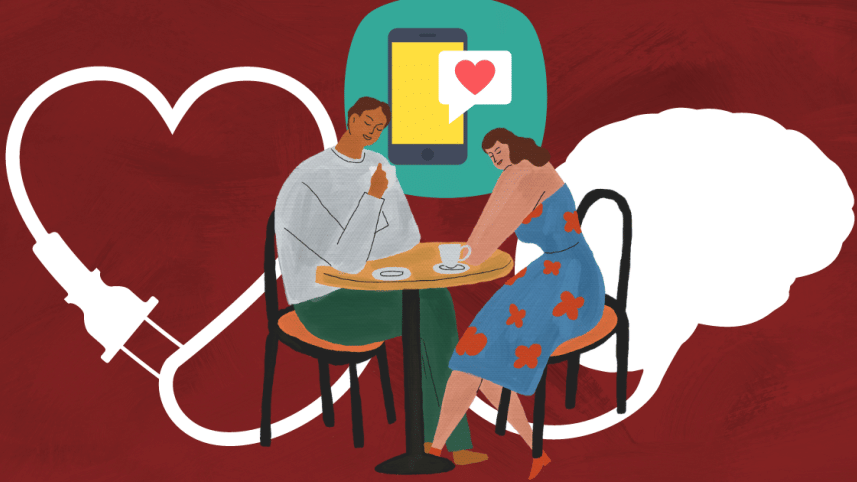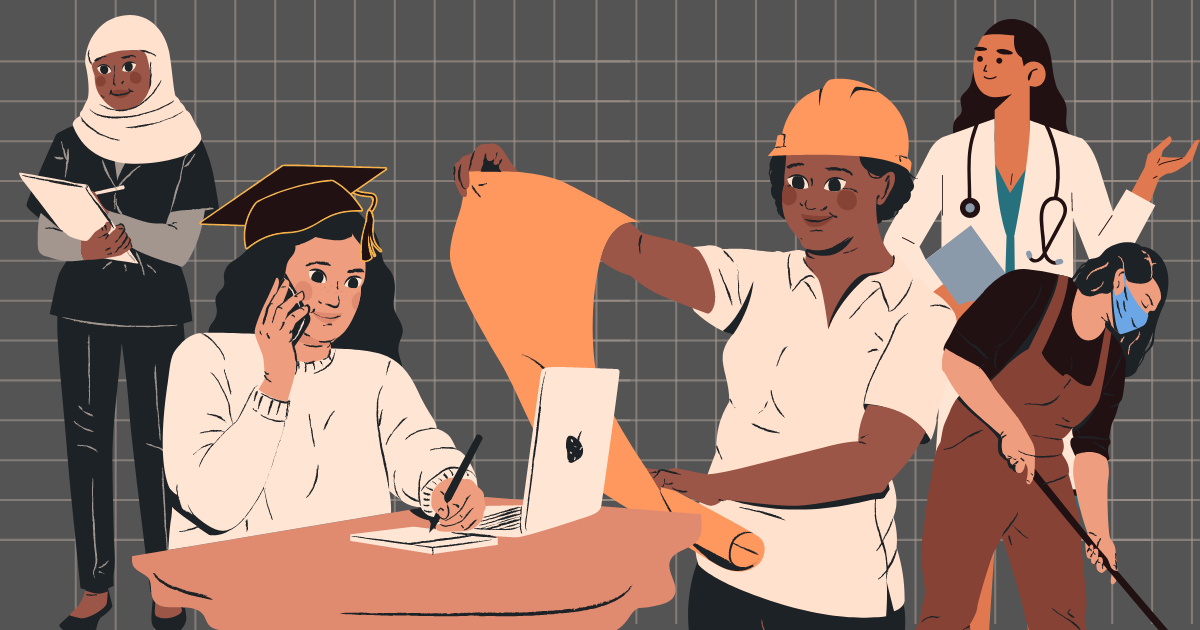Dating apps in Bangladesh: Have they changed the game of love?

The first time I opened up an account on a dating app was after coming out of a fairly long relationship. Now, almost two years later, I am still left confused by the overall app experience.
See, if you're setting your expectations in accordance with social media, then you're just one right-swipe away from finding the love of your life. Sure, it might take a month or two, sometimes even a year, but you will find happiness and joy in these apps. At least that's what Tinder, Bumble, Hinge, etc. want you to believe.
These dating apps became a big part of many of our lives during the pandemic, and they seem to have stuck around. And why wouldn't they? The convenience that comes with these apps is incredible.
The culture of dating in Bangladesh is rather unique. Being a Muslim majority country, dating in Bangladesh can be a sensitive topic at times. However, the avenue created by dating apps facilitates an interesting scenario at times.
If going outside and meeting new people is difficult for you, be it due to strict parents or social anxiety, then you can just meet new people over a mobile app. If you're someone who has neither of these hang-ups, then you just found a new way of meeting even more people.
While South Asian countries generally tend to be averse to the concept of dating in general, it seems dating apps such as Tinder and Bumble have done a great job of normalising the concept.
What's even more interesting is that Bangladesh has around 6.8 million dating app users, according to Statista, and can expect significant market growth in the next five years.
While it seems unlikely now, there may be a future where the large-scale adoption of dating apps normalises our country's typical sentiments towards dating. And with the government's focus on a digital Bangladesh still going strong, it is at least likely that dating apps' user base will expand manifold in the near future.
For generations that have grown up with the internet, it makes sense that interactions in real life have shrunk over time. Nowadays, we only meet people through our existing social circles and any institutes we are engaged in – work, school, coaching centres, etc. So, dating apps can be a great way to meet people even without the intention of forming a relationship.
However, if we are to look at the actual experiences of people, then it quickly becomes apparent that dating apps might not always work the right way. In a recent conversation with my friend, Farhin*, a student of Independent University, Bangladesh, we got to talking about the different experiences men and women have on dating apps.
While my own experience as a man has led me to conclude that dating apps can be a hit or a miss, depending on what you're looking for, my friend Farhin notes that often women's experiences can be on the worse end: "Sometimes people see my profile on these apps, and then message me on Facebook or Instagram to ask me out or to tell me that they are interested. It feels like a boundary is being crossed, because if we did not match on the app, then why is someone messaging me personally?"
I've heard similar stories from a lot of women, with many opting out of using dating apps just to protect their own privacy. Some often prefer apps like Bumble over Tinder, as the former has a more filtered selection of people and also allows women to initiate conversations. However, even with such features, women's experiences on dating apps are not always positive.
Worse still is the stigma women face from their friends and family when using such apps. While most men can use as many of these apps as they want without thinking twice about what anyone will say, women are prone to being under a lot of scrutiny for simply existing on these apps.
I've seen this first-hand when friends – who I would generally consider progressive – have patted me on the back for getting on these apps, while judging and critiquing women for doing the same. "Dating apps are not safe for women," they say, going on to wonder, "Why would a woman go on a dating app? She'll only meet weirdos and creeps. Doesn't she know that it's unsafe for a woman to put her private information on the internet?"
Some of these critics act as if the terrible experiences of some women on dating apps is "justified," as if to vilify them just for putting themselves out there. But it should go without saying that if a woman has bad experiences on dating apps, then it's not a reflection of her character or virtues, rather that of the people she is matching with.
All in all, dating apps have made it much more convenient to meet new people. You no longer have to go to parties or events to meet new people who might be interested in a relationship. Neither do you have to message someone on Instagram and Facebook, and then be told that they are dating someone. You can go on one of these apps and immediately find single people who are usually there with the same intention.
Still, people need to temper their expectations from these apps. Just because Tinder exists, doesn't mean that you can immediately hop on and find the love of your life. You still have to navigate through a process of trial and error, meeting people, talking to them, figuring out whether you click or not, and so on.
Dating apps have changed how we pursue relationships, while still preserving some of the best parts of that experience. Having used these apps myself, I can tell you that the process of swiping across a multitude of profiles, on your quest for love (or whatever it is you're looking for), can be quite difficult. But, at the end of the day, the benefits these apps bring to the table – and what they will continue to bring, as they improve over time – is undeniable.
Aaqib Hasib is a sub-editor at The Daily Star.




 For all latest news, follow The Daily Star's Google News channel.
For all latest news, follow The Daily Star's Google News channel. 

Comments